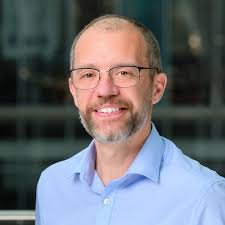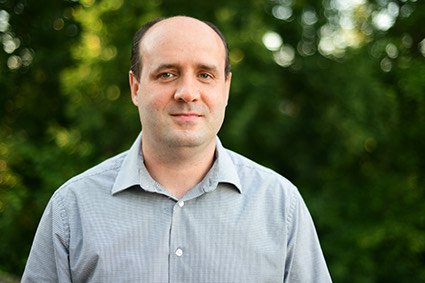What is the Fusion Engineering Centre for Doctoral Training?
Photo courtesy of UK Atomic Energy Authority
Photo courtesy of UK Atomic Energy Authority
Our funding was announced by the UK Atomic Energy Authority in February 2025 - see the press release here.
”I am delighted that after a very competitive bidding process, we have been able to select an academic team to embark on this exciting collaboration, which will supercharge the development of specialist engineering skills for the fusion sector. The programme combines international research excellence with deep fusion engineering expertise, and we look forward to working together in the coming years to build a world-leading platform for fusion engineering training. A particular highlight of this collaboration is the Fusion Engineering CDT Associate Membership scheme which will provide PhD support to a wider landscape of universities who share our commitment to invest in the future of fusion energy.”
Nick Walkden, Head of Fusion Skills and FOSTER Programme Director / UK Atomic Energy Authority
“Students recruited into the Fusion Engineering CDT are expected to work in the fusion industry sector for the next 40 years, where they will face huge challenges and knowledge gaps, at a scale we’ve never encountered before. The Centre will cultivate fusioneers who are ready to tackle these critical challenges for fusion energy. With training delivered by world-leading experts, we’re creating a workforce with the skills to design, build, and operate fusion power plants – who are able to make an immediate contribution.”
Professor Lee Margetts, Fusion Engineering CDT Principal Investigator / The University of Manchester
We offer 4-year PhD and EngD projects in a cohort setting in 10 key themes; advanced manufacture, artificial intelligence, computation, construction, control, maintenance, modelling, qualification, safety and simulation.
Our training and research will develop STEM graduates into engineering leaders to design, build, safely operate, maintain and eventually decommission fusion power plants.
Why join the Fusion Engineering CDT?
You graduated with a 2.1 degree in a STEM subject and can demonstrate a passion for sustainable energy
You want a career in a growth area of the UK engineering industrial sector
You want a fully funded 4-year Engineering Doctorate EngD research studentship
You want an industry placement and to build professional networks
You want to start your EngD with a 3-month training programme of hybrid workshops in fusion engineering
You want to build a portfolio for your CEng accreditation
You’re a STEM graduate employed in the fusion sector already?
We have a scheme for employers to sponsor their employee to obtain an EngD in the Centre, by nominating a project that supports the employers R&D interests. This route and can provide a cost effective way for employers to retain staff and offer a unique development opportuity to enhance their technical capabilities.
Video courtesy of the UK Atomic Energy Authority
What is STEP?
The first of its kind, STEP is the UK’s major technology and infrastructure programme to build a prototype fusion powerplant that will demonstrate net energy, fuel self-sufficiency and a viable route to plant maintenance.
This will pave the way for the potential development of a fleet of future fusion powerplants around the world and the commercialisation of fusion energy. We’ll achieve this by producing a prototype tokamak powerplant — in an innovative spherical shape — that will demonstrate net energy. That’s why the programme is called STEP: it stands for ‘Spherical Tokamak for Energy Production’.
But STEP is about more than tokamak technology — it’s a huge endeavour encompassing design, site development and construction, alongside supply chain logistics and industry. Fusion research and development has the potential to catalyse new ideas and technologies that will benefit multiple industries and help secure our future on this planet. By fusing government and business, inspiration and pragmatism, theory and practice, UK-expertise and international impact, we’re going to realise the step-change that will secure humanity’s bright future.
CDT Managment Group
-
Professor Lee Margetts
Director
UKAEA Chair of Digital Engineering for Fusion Energy
University of Manchester

-
Professor Russell Goodall
Deputy Director
Professor of Metallurgy
University of Sheffield

-
Professor Arun Bhattacharya
Co-Director
Tokamak Energy Chair in Fusion Energy
University of Birmingham

-
Professor Karl Whitte
Co-Director
Professor Zero Carbon and Nuclear Energy
University of Liverpool

-
Professor Philip Edmondson
Co-Director
UKAEA Chair - Tritium Science & Technology
University of Manchester

-
Professor Chris Race
Co-Director
UKAEA Chair in Fusion Materials
University of Sheffield

-
Sharon Brown
Manager (University of Sheffield)

-
Frances Rocca
Administrator (University of Manchester)



